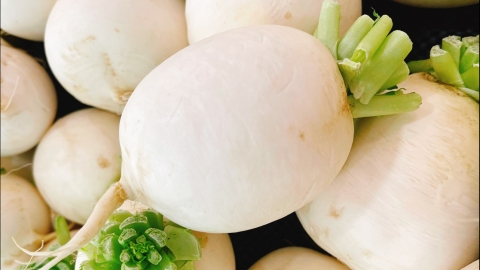Can I eat white radish after drinking Cornus officinalis?
Generally speaking, it is acceptable to consume dogwood with white radish, but excessive intake should be avoided. The detailed explanation is as follows:

White radish is cool in nature and rich in nutrients such as vitamin C and dietary fiber, offering effects of clearing heat and detoxifying, and aiding digestion. Dogwood, on the other hand, is warm in nature and has an acidic, astringent taste, with functions of nourishing the liver and kidneys and consolidating essence and urine. According to traditional Chinese medicine theory, these two ingredients possess different properties, but they generally do not conflict with each other. For example, in cooking, white radish can be added to dogwood-braised lamb soup, a dish that not only tastes delicious but also helps nourish the liver and kidneys, enriches essence, and reduces internal heat.
However, excessive consumption of white radish may cause coldness in the spleen and stomach due to its cool nature, affecting the spleen and stomach's function of transformation and transportation. Dogwood relies on the spleen and stomach's transformation to exert its nourishing effects; therefore, impaired spleen and stomach function will naturally hinder the efficacy of dogwood and may also cause discomforts such as indigestion, abdominal pain, and diarrhea. Hence, moderate consumption is recommended.
In daily life, maintaining a balanced diet and paying attention to ingredient combinations can help improve overall health.
References
[1] Yu Hongwei. "Dogwood as Both Medicine and Food" [J]. Henan Agriculture, 2024, (15): 2.
[2] Li Xiaojun, Guo Juan, Liu Qingye, et al. "Research Progress and Development Strategies of Dogwood-Based Foods" [J]. Journal of Shaanxi University of Technology (Natural Science Edition), 2024, 40(03): 77-83.





